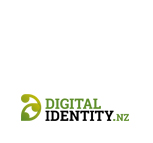Observed annually on 16 September, International Identity Day aligns with the United Nations’ Sustainable Development Goal (SDG) 16.9, which aims to provide legal identity, including birth registration, to all people by 2030. While most of us can easily prove our identity, for millions around the world, the lack of legal identity remains a significant barrier to accessing even the most basic services.
If you’re reading this, the chances are that you have a legal identity and can prove it. But without one, life is vastly different. Without legal documentation, children may miss out on vaccinations and education, adults are unable to secure formal employment, access healthcare or welfare, vote in elections, start a business, use banking services, travel abroad, register their children’s births, or even claim inheritance or pensions. In effect, you don’t officially “exist.”
The Global Picture: Millions Left Behind
In 2021, the World Bank’s ID4D Global Dataset reported that over 850 million people worldwide had no way to prove their identity. Around 540 million of these individuals were in Africa, and half of all women in low-income countries lacked identification. Although progress has been made since then, it is difficult to determine how much progress has been achieved until the next dataset is published.
Globally, civil registration programmes are being increasingly integrated with healthcare systems to ensure children are enrolled early. National birth registration initiatives have been launched or accelerated in countries like Cameroon, Zimbabwe, Nigeria, and Papua New Guinea. This issue is not confined to low-income nations, as high-income countries, including Australia, are also making strides in streamlining identity processes. A recent pilot in New South Wales, for instance, allowed parents to register the birth of their baby across federal and state government agencies using a single account. This “tell us once” approach eliminates the need for parents to interact with multiple government agencies—reducing up to seven separate interactions.
The Challenges Closer to Home
Whilst Aotearoa New Zealand may seem far removed from these global statistics, we are not without our own identity challenges. Certain groups in our population struggle to prove who they are, including rural communities, blind and deaf citizens, former refugees, unhoused people, those who have escaped domestic abuse, and individuals recently released from prison. These groups often remain legally invisible. This raises the question: can Aotearoa help address this before 2030, or will we run out of time to meet the goal?
Take Action and Learn More
International Identity Day serves as a reminder that the right to identity is fundamental. Without it, people are denied basic human rights. For a deeper understanding of this global issue and the progress being made, we recommend listening to the ID16.9 podcast, which offers valuable insights into the state of identity inclusion around the world. The podcast is available on Spotify, Apple, Google, or at ID16.9 podcast.
As we move towards 2030, it is clear that achieving universal legal identity is not just about meeting a target set by the UN. It’s about unlocking access to opportunities, dignity, and human rights for everyone. Let’s continue to push for meaningful change, both here in Aotearoa and globally.
By Vica Papp






